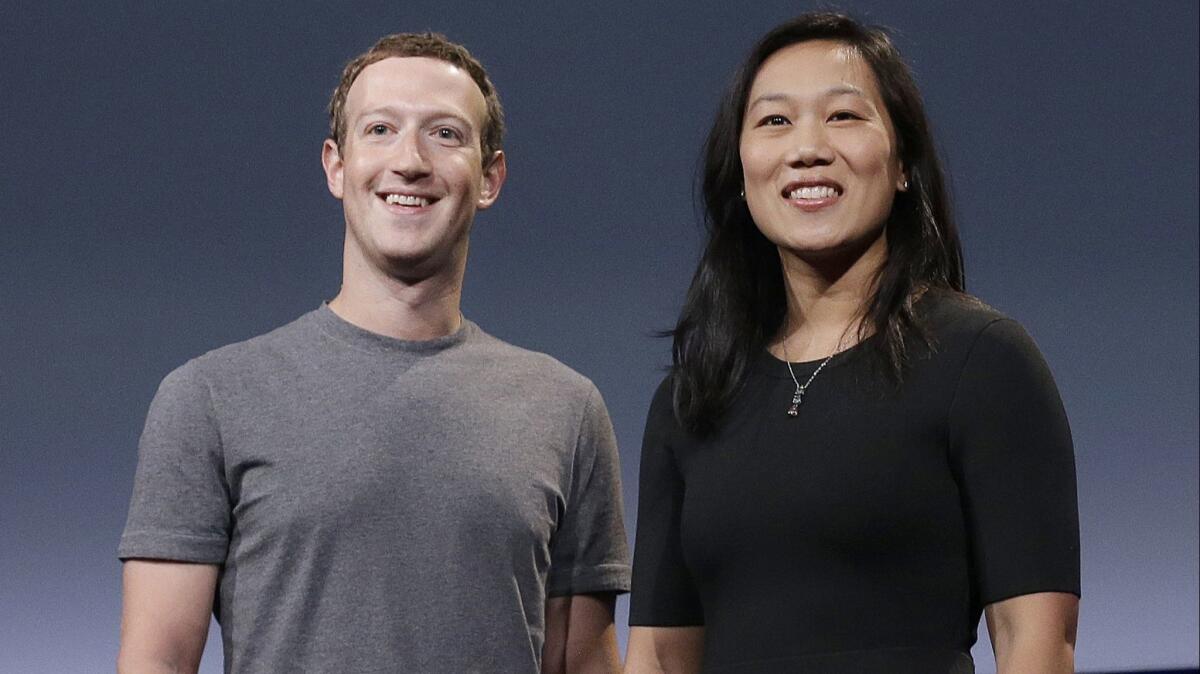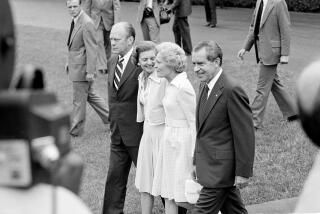Mark Zuckerberg’s charity under siege after Facebook scrutiny

Mark Zuckerberg, already battling unprecedented discontent among workers at Facebook Inc., is also under siege from employees and beneficiaries of his own charity, the multibillion-dollar Chan Zuckerberg Initiative.
A group of scientists funded by Chan Zuckerberg Initiative, or CZI, wrote an open letter to the billionaire last month expressing concern over Facebook’s propagation of misinformation. The letter was just the beginning, organizers say, and the charity’s employees continued the discussion on ways they might push their boss to fix his social network’s hate speech problem.
“There’s a long history of misinformation at Facebook that has had a negative impact on democracy and society, not only in the U.S., but around the world,” said Martin Kampmann, a CZI-funded scientist who helped organize the letter to Zuckerberg, which has been signed by 277 people, including several of the charity’s employees.
Jason Shepherd, another scientist funded by CZI who signed the letter, said the group has been lying low the last few weeks to try to decide what their next steps should be. Other organizations that are speaking out have contacted them to start a dialogue, and the scientists say they’re open to working with experts on how to tackle the problem of misinformation.
“Now that there’s more and more pressure, one option is for us to have actionable items,” Shepherd said.
Other Zuckerberg critics include some doctors at Zuckerberg San Francisco General Hospital, who reached out to the scientists in support of their critical letter. There has been a years-long effort to remove “Zuckerberg” from the hospital’s name after it was added in 2015 following a $75-million donation from the billionaire and his wife.
San Francisco Supervisor Matt Haney revived that fight this week as pressure mounted on Zuckerberg and Facebook, with critics across industries accusing the service of failing to police its platform and keep it clear of offensive and hateful content.
“I’m well aware that he made a donation,” Haney tweeted on June 28. “There are options to still remove it, and nurses who have been working on a strategy that wouldn’t lose us millions.” In another tweet, Haney said there is interest from nurses in organizing a ballot measure to drop the name.
Community members and staff have expressed concern “on and off” since the name change, hospital spokesman Brent Andrew said. “The hospital has no plans to change our name and does not have the legal authority to do so even if we were to desire it,” he added.
Zuckerberg, 36, who has long been a punching bag for politicians, tech-industry critics and billionaire-haters, was seemingly reviving his reputation in May, positioning himself as the technology world’s level-headed public figure and philanthropist in the fight against COVID-19.
His philanthropy’s focus on public health made it a natural issue for him to assert leadership. He hosted multiple Q&As with experts on his Facebook page, and was quick to pivot the company toward fighting coronavirus misinformation. Then, with one post by President Trump, everything quickly reversed course.
“When the looting starts, the shooting starts,” Trump posted on May 29, a reference to protests following the killing of George Floyd, an unarmed Black man, by a white Minneapolis police officer. Zuckerberg decided that the post didn’t violate Facebook’s policies, deviating from Twitter Inc.’s decision to flag the post for “glorifying violence.”
Facebook’s inaction has released a torrent of pent-up frustration. Hundreds of advertisers have said they’re boycotting the platform for a month or longer. Last week, the tanking of Facebook’s shares cut Zuckerberg’s fortune by $7 billion in a single day. Other Silicon Valley billionaires have chimed in to assail the CEO’s stance, and now even Zuckerberg’s philanthropy is under attack.
“Although the Chan Zuckerberg Initiative is a philanthropic organization that’s entirely separate from Facebook with its own mission and team, we understand that for some there is frustration in feeling like CZI’s work is being impacted by an organization for which they don’t work,” a spokesperson for the charity said in a statement.
For Kampmann, Trump’s post was the tipping point, but it underscored the broader conundrum.
“This is bigger than Trump,” he said.
Zuckerberg and his wife, Priscilla Chan, who runs CZI, responded to the letter with one of their own. The couple thanked the scientists for sharing their views and said they too were “deeply shaken and disgusted by President Trump’s divisive and incendiary rhetoric.”
For many, that’s not enough. During a town hall in June, a CZI employee suggested Zuckerberg resign if he wouldn’t moderate Trump’s comments, according to a tape obtained by Recode.
“I mean, no,” Zuckerberg responded.
Rather than stepping down, “it’d be much better if he stepped up and was on the right side of history and made Facebook change,” said Debora Marks, one of the CZI-funded scientists who signed the open letter. Marks, Shepherd and Kampmann are part of CZI’s Neurodegeneration Challenge Network, which studies disorders like Alzheimer’s, Parkinson’s and ALS.
Within Facebook itself, there were also the hundreds of employees who staged a virtual walkout and the hundreds of advertisers currently boycotting the company. The civil rights groups behind the boycott — the National Assn. for the Advancement of Colored People, the Anti-Defamation League and Color of Change — have railed against Zuckerberg as the movement has grown. Zuckerberg, along with Facebook Chief Operating Officer Sheryl Sandberg, will meet with leaders from the groups on Tuesday.
“This is where you have a runaway train,” NAACP CEO Derrick Johnson said June 29 on Bloomberg Television. “And that runaway train is causing harm to the public and it’s causing harm to our democracy.”
Zuckerberg has faced intense criticism in the past. His role atop the world’s largest online community has made him a repeated target. Still, the pushback has taken on a more intense vigor than in years prior. Facebook has always had an open culture, and it’s common for employees to vocally disagree with leadership internally, but not publicly.
Employees at the company have tweeted that they were “utterly ashamed,” and that Facebook was “on the wrong side of history” with regards to Zuckerberg’s decision to leave Trump’s posts up. Days later, Zuckerberg was challenged by employees at a companywide all-hands meeting, just one day after the virtual walkout.
The advertising boycott has also been aggressive. While many analysts don’t believe that Facebook’s business is in a long-term bind, never before have so many brands pulled back from the social network.
Facebook has been forced to scramble a response, repeatedly reaching out to advertisers to explain what steps the company is taking to address hate speech, and prompting Zuckerberg to broadcast an employee Q&A session live — a rare occurrence in which he also announced changes to Facebook’s policies. One of those changes, a new label Facebook will apply to posts that violate its rules but come from newsworthy sources, was a strategy Zuckerberg himself had dismissed just a few weeks earlier.
“We’re already starting to see Facebook react to this,” said Mark Shmulik, an analyst at Bernstein Securities. Zuckerberg told employees that he was confident Facebook advertisers would be back “soon enough,” according to the Information.
Facebook’s top 100 advertisers accounted for roughly $4.2 billion in sales revenue last year, digital consultant Pathmatics estimates, or just 6% of all the company’s revenue.
Facebook’s stock has recovered from its 8% fall just days ago, restoring Zuckerberg’s $7-billion loss. He’s still the fourth-richest person on the Bloomberg Billionaires Index, with an $89-billion fortune.
That money is being put to good work, said Shepherd, one of CZI’s scientist grantees. It’s part of what complicates Zuckerberg’s position.
“Without Facebook you don’t have CZI,” he said, an admission that while he doesn’t always agree with Facebook’s business, good does come of it. But then, he said, he’s left with another question: “Where is the breaking point?”






